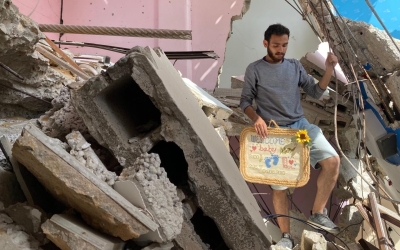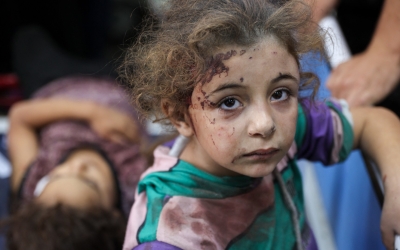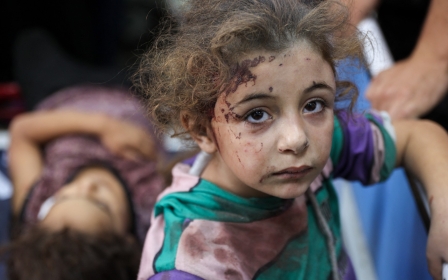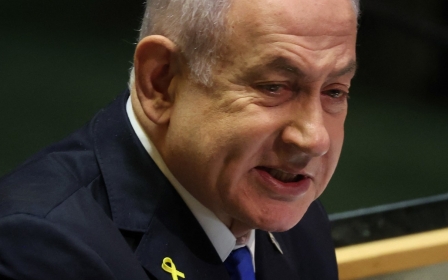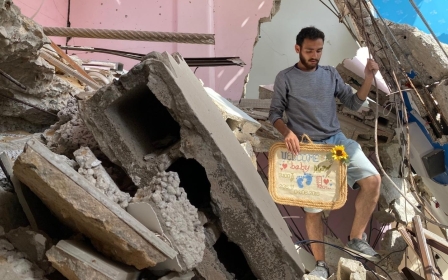'Endless nights of terror': Six constants of Israel's war in northern Gaza Strip
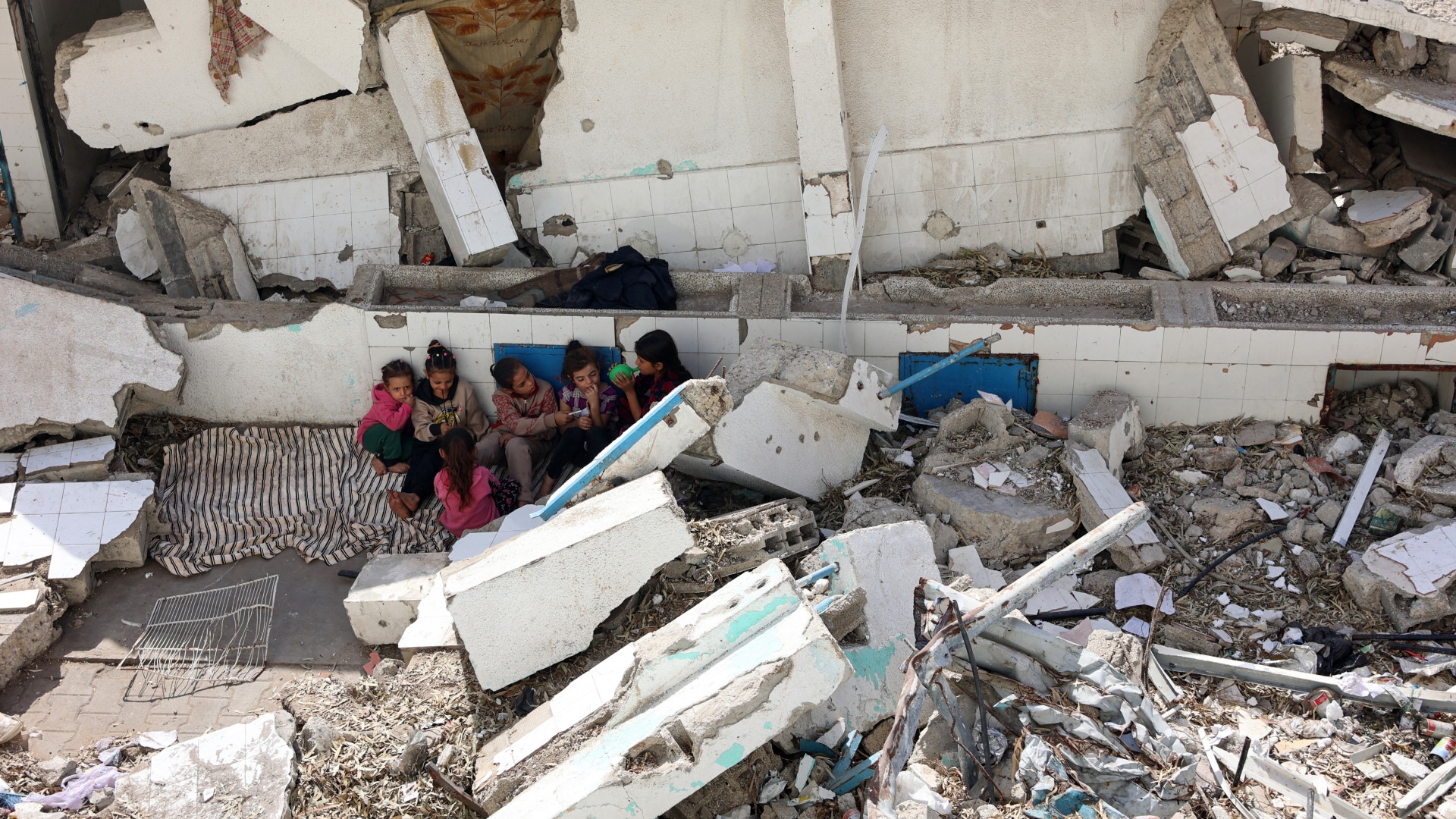
It's been 381 days since Israel launched its ongoing assault on Gaza, and I feel like an expert in the struggle to stay alive.
For readers who have not yet endured this sort of grim living, allow me to describe what you could expect. I'm using my own experiences as an example, but they are near-universal for the more than two million citizens of Gaza.
1. You will have endless nights of terror
Before 7 October 2023, nights were the best time for me to work, hang out with friends, or gather with my family. But now nights have become the worst part of my day, especially these days - as the Israeli military's escalating aggression in northern Gaza, where I live, enters its third week.
Each night feels like a hundred years of terror. The deafening roar of Israeli drones and jet fighters hums in my head, robbing me of any chance of sleep.
New MEE newsletter: Jerusalem Dispatch
Sign up to get the latest insights and analysis on Israel-Palestine, alongside Turkey Unpacked and other MEE newsletters
For days, I haven't had a moment's rest.
The relentless buzzing of drones and the thunderous artillery shelling - especially from 8pm until sunrise - rob me of any chance of sleep. Beyond the noise, the threatening sounds weigh heavily on my mind, serving as a constant reminder that death could be near. This psychological assault fills every moment with nervous tension.
The sky glows red at night, filled with flying shrapnel of wood, metal, and stone. The ground shakes beneath our building, and none of us can sleep until sunrise, when the air strikes and artillery shelling usually begin to ease.
On some nights in this war, I lost precious people. My sister's house was bombed. I believe that the Israeli forces commit their worst crimes at night, turning those few hours intended for rest into a long nightmare of deep horror and looming grief.
2. Your home will never be safe
I have been displaced 14 times, moving back and forth from relatives' houses to strangers' houses, and even once to a classroom in a school. Now, I'm back at home with my family. It's not safe; the threats of bombing, starvation, and water shortages loom large, tightening the chances of survival.
Follow Middle East Eye's live coverage for all the latest on the Israel-Palestine war
When the Israelis launched its recent assault in the northern Gaza Strip, my family's main concern was about the rumours of the "General's Plan", in which Israeli forces aim to "cleanse the area of Gaza City with almost no enemy”.
We discussed where we might go as a family. But we realised there was no safe place left - not even the south, where the Israeli forces had already committed massacres in schools, hospitals, and so-called "safe zones". So, we decided to stay in our home. At least if we are killed, we might be recognised and buried near the place we once lived.
3. You will be hungrier than you could ever imagine
This massive extermination campaign in northern Gaza is made even worse by the food and water shortages. We have already been living through famine for months, and now even the limited humanitarian aid that occasionally entered Gaza has nearly stopped.
Starvation feels like a slower, more painful death than the bombs
The few parcels of food that come through are nowhere near enough to feed over 500,000 starving people that remain in the northern Strip.
Personally, the last time my siblings and I received a food parcel, was two months ago. It contained barely enough food for ten days under normal circumstances, but we have learned to survive on less, eating only two small meals a day.
We were supposed to receive a food parcel from Unicef last week. I went to the distribution point last week, but it was empty. The workers confirmed that no aid trucks have entered Gaza since the latest Israeli incursion in Gaza began. I didn't want to go home empty-handed.
What would I tell my sisters? What would I say to the children who were waiting for me to return with food?
I went to the shop to see if I could find something to buy, but there was nothing to eat. The farmlands in the northern Strip, places like Jabalia, Beit Hanoun and Beit Lahiya, which once supplied us with a few vegetables like eggplant and mulukhiyah, are now being utterly destroyed.
For over 10 days now, like most people in northern Gaza, we've survived on what little canned food we had saved. Our meals have been reduced only to lentils, pasta, pea soup, and bread.
Every day, my nieces and nephews cry out for something else to eat, but we have no choices left. Starvation feels like a slower, more painful death than the bombs.
4. Your family will lie to each other that they are 'fine'
Yesterday, I was on a video call with my father in Egypt. My parents were lucky to flee Gaza a day before the Israeli troops invaded Rafah and closed the border. My mother's health had been deteriorating, and once they reached Egypt, she was diagnosed with pancreatic cancer.
In the middle of our video conversation, two air strikes hit nearby residential buildings. The phone slipped from my hand, and I fell to the ground to shield myself from the shrapnel.
My father remained silent, his wide eyes and ashen face said everything. I tried to hide my panic and told him that I was okay.
My parents keep telling me to save as much water and food as I can, to keep the emergency bag ready for any sudden displacement to the south, and try to stay safe.
They know the truth: there is no safety in Gaza. They try to comfort themselves, and I pretend that everything is fine.
When I ask how they are - especially regarding my mother's health, they always tell me they're "fine". I'm left wondering whether to believe them or if this is just how we protect each other - by pretending, even when we know the reality is far worse.
5. Even your family members outside the war zone will suffer
My brother, Hamedo, also managed to leave and go to Egypt eight months ago, but every few days, he calls me and confesses that he feels he is still trapped in Gaza.
'When I think of how the seagull eats better than my mother, my heart breaks down for our misery and poor fate'
He tells me about a recurring nightmare that keeps him from sleeping: "I see myself in the house, then an air strike blows it up and buries me alive under the rubble," he says. "I scream out for help, but no one replies until I wake up drenched in terror."
My friend Ahmed, who left Gaza just before the war to pursue his master's in Dublin, told me during a video call that he has been suffering from panic attacks since the war began, knowing that his family is still trapped in Gaza.
Like most Palestinians from Gaza who live abroad, he feels a deep sense of guilt when talking about food, knowing that so many of us here in Gaza are still enduring famine.
"One day, while chatting with my mother, she mentioned that she missed eating fish," Ahmed told me. "That very day, I had fish for lunch and fed the leftovers to a seagull that visits my window. When I think of how the seagull eats better than my mother, my heart breaks down for our misery and poor fate, he added.
6. Despite living on the edge of death, you will still look to the future
Despite the constant bombing and dire conditions, my sisters - like many women in Gaza - continue teaching their children basic subjects at home or in tents. Even high school and university students are completing their studies for a tomorrow that may never come.
"I teach my five-year-old son, knowing we may both be killed before the end of this war," Linah, my sister, once told me. She even buys clothes for her children in larger sizes, fearing that next year's clothes will be unavailable due to the blockade.
This bizarre preparation for an uncertain future is not just limited to children. Many men have had to work jobs they'd never imagined before the war, having spent their savings just to survive.
Sami, a close friend and once an attorney, now sells goods from a small stall. "My two little girls don't care what I do as long as I can give them money for whatever candy is available," he said. His legal career feels like a distant memory, replaced by the need to provide for his family by any means possible.
I even found myself, in one hour, applying for a journalism fellowship and, in the next, wracked by the force of a nearby bombing.
One question on the fellowship application was to propose a topic to write about. Without hesitation, I chose famine.
Yet I'm not sure If I will survive famine, and if I do, whether bombing or being captured in the Israeli invasion will allow me to accept the fellowship if it is offered to me.
The views expressed in this article belong to the author and do not necessarily reflect the editorial policy of Middle East Eye.
Middle East Eye delivers independent and unrivalled coverage and analysis of the Middle East, North Africa and beyond. To learn more about republishing this content and the associated fees, please fill out this form. More about MEE can be found here.



